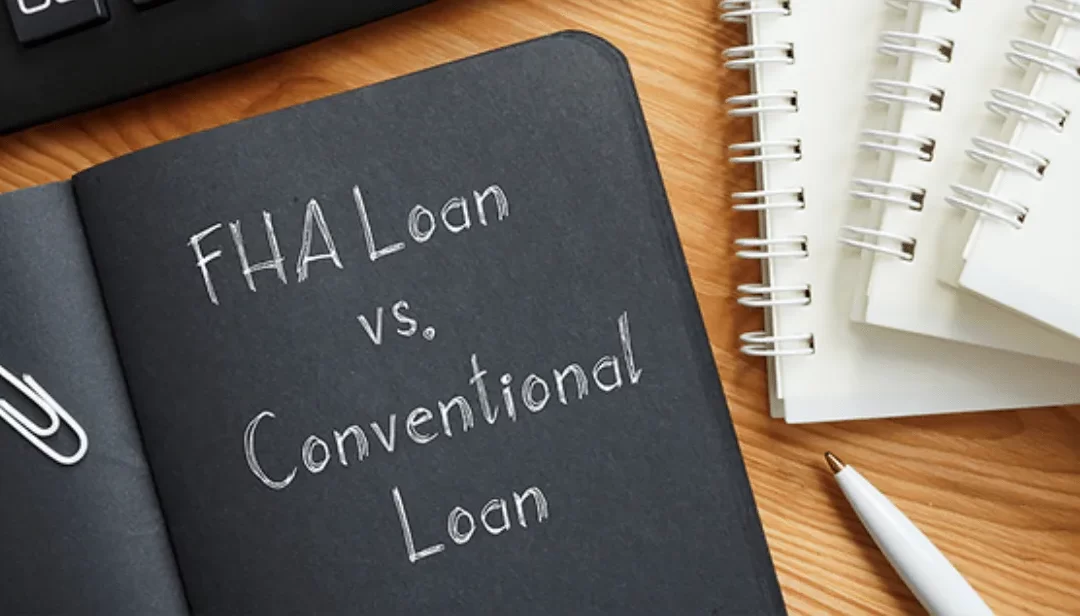When it comes to securing financing for your dream home, understanding the nuances between different types of loans is crucial. FHA (Federal Housing Administration) loans and conventional loans are two prevalent options, each with distinct features and eligibility criteria. This blog aims to demystify the differences between FHA and conventional loans, empowering homebuyers to make informed decisions about their mortgage options.
FHA Loans:
1. Government-Backed Insurance:
- One of the defining features of FHA loans is that they are insured by the Federal Housing Administration. This insurance mitigates the risk for lenders, allowing them to offer more lenient qualification requirements.
2. Lower Down Payment:
- FHA loans typically require a lower down payment compared to conventional loans. The minimum down payment for an FHA loan is often as low as 3.5% of the purchase price.
3. Credit Score Flexibility:
- FHA loans are more forgiving when it comes to credit scores. Borrowers with lower credit scores may still qualify for an FHA loan, making it accessible for individuals with limited credit history or past financial challenges.
4. Debt-to-Income Ratio:
- FHA loans may be more accommodating regarding debt-to-income ratios, allowing borrowers to allocate a higher percentage of their income to debt payments.
5. Assumable Loans:
- FHA loans are assumable, meaning that a future buyer can take over the existing FHA loan, potentially offering a selling advantage in certain market conditions.
6. Upfront Mortgage Insurance Premium (MIP):
- FHA loans require borrowers to pay an upfront Mortgage Insurance Premium (MIP) at the time of closing, in addition to ongoing monthly mortgage insurance premiums. This insurance protects the lender in case the borrower defaults on the loan.
Conventional Loans:
1. Private Mortgage Insurance (PMI):
- While FHA loans have upfront and ongoing mortgage insurance premiums, conventional loans typically require Private Mortgage Insurance (PMI) if the down payment is less than 20%. PMI protects the lender but is usually less expensive than FHA mortgage insurance.
2. Higher Down Payment:
- Conventional loans generally have a higher minimum down payment requirement, often ranging from 5% to 20% of the home’s purchase price. However, a larger down payment can lead to lower monthly mortgage payments and reduced interest costs.
3. Credit Score Requirements:
- Conventional loans typically have stricter credit score requirements. Higher credit scores are generally preferred to secure favorable interest rates and terms.
4. Debt-to-Income Ratio:
- Conventional loans may have more stringent debt-to-income ratio requirements, limiting the percentage of income that can be allocated to debt payments.
5. Fixed and Adjustable Rates:
- Conventional loans offer both fixed-rate and adjustable-rate options. Borrowers can choose a fixed-rate mortgage for consistent monthly payments or an adjustable-rate mortgage for initial lower rates that may fluctuate over time.
6. Loan Limits:
- Conventional loans may have higher loan limits than FHA loans, making them suitable for individuals seeking financing for more expensive properties.
Choosing Between FHA and Conventional Loans:
FHA Loan Might Be Right for You If:
- You have a lower credit score.
- You have limited funds for a down payment.
- Your debt-to-income ratio is on the higher side.
- You are a first-time homebuyer.
Conventional Loan Might Be Right for You If:
- You have a higher credit score.
- You can afford a larger down payment.
- You prefer flexibility in terms of fixed or adjustable rates.
- You are purchasing a more expensive home.
Choosing between an FHA loan and a conventional loan boils down to your unique financial situation, credit history, and homeownership goals. While FHA loans offer accessibility with lower down payments and credit score flexibility, conventional loans provide more options for borrowers with solid credit and the ability to make a larger down payment. Consulting with a mortgage professional and thoroughly evaluating your financial standing will guide you in selecting the loan that aligns with your long-term homeownership objectives.
Want to schedule a call with us?
Complete the form below to request a callback.
